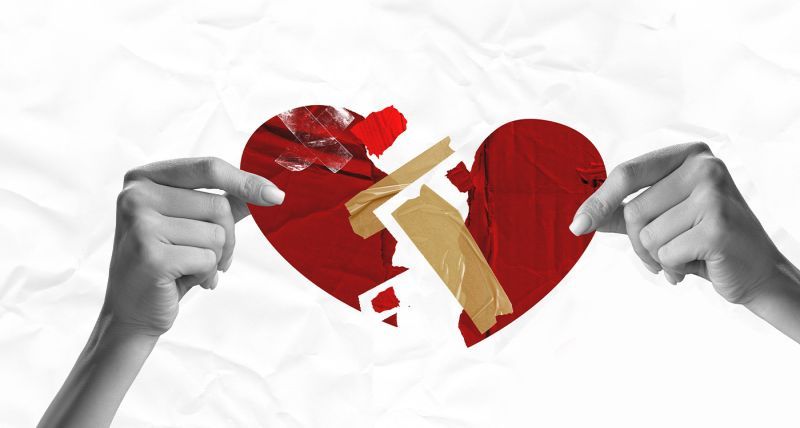
Despite the difficult times Lebanon is going through, love still finds a way. It is reinventing itself, especially among young people. Caught between passion and pragmatism, these generations are redefining their aspirations and relationships in a country undergoing profound change.
This year, Valentine’s Day comes amid Lebanon’s struggle to recover – from war, constant political instability and an unrelenting financial crisis. And who better than the Lebanese to bring a touch of red to all this grayness?
For some, this day is little more than a marketing ploy; for others, a chance to celebrate their loved ones; and for others still, a stark reminder of solitude. But one way or another, it all revolves around that one word, “Love” – with a capital “L.”
After all, Cupid never hesitates to shoot his arrows, regardless of age, but his favorite targets are undoubtedly the young – those still finding their way, still discovering who they are. The real question is whether his arrows can pierce through such hostile times.
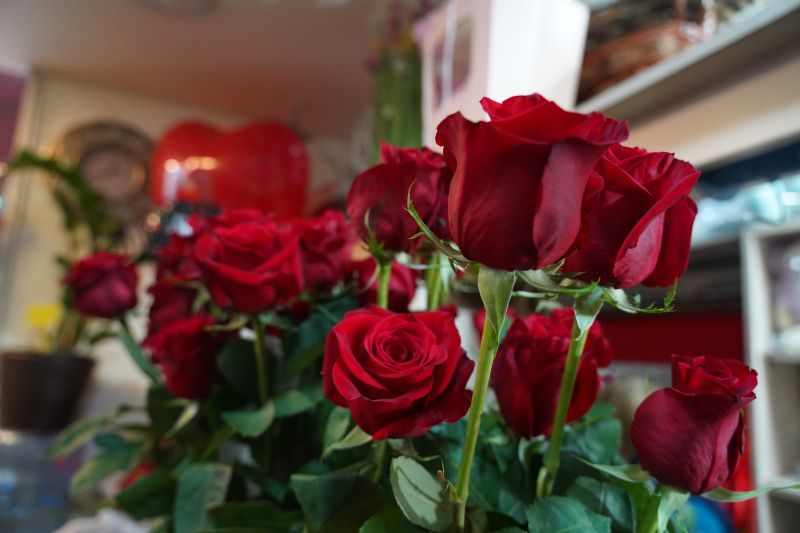
Does War Echo Love?
“It was during the war that I realized how much I needed love in my life,” confides Elise*. The 25-year-old woman, disheartened after a long relationship, had decided not to date for over two years. Working in the media industry, she had prioritized her career over Cupid’s arrows. “Given my profession, I was immersed in the harsh realities of war. I worked a lot, and oddly enough, that was when I found myself alone and realized how much I needed a shoulder to lean on and some support...” Elise shares, still surprised by the realization.
These words come as no surprise to psychologist and life coach Maya Hawa. “In times of instability, some people seek love as a refuge. They need to feel loved to find support, as well as a sense of self-worth, and to reconnect with themselves,” explains the expert. The relationship then becomes a way to fill an emotional void and find reassurance.
This is not the case for Johnny*, who has been single for eight long years. “Realistically, today, love is not my priority. Given the country’s security, political and economic instability, this period is still one where I’m focusing on building myself and striving for financial stability. I don’t want to add an extra burden on myself,” says the 31-year-old, who juggles multiple jobs and responsibilities.
This is far from an isolated case, says Hawa, who points out that the deeper a country’s crisis, the less likely people are to start relationships – especially young people, who, at this stage in their lives, often have many projects and responsibilities. As the psychologist explains, “When a person’s financial situation becomes unstable, they begin to question themselves and doubt their abilities. This can make it difficult for them to fully love themselves, which in turn makes loving others more challenging.” Faced with stress and uncertainty, these individuals tend to withdraw, believing they are not ready to give or receive love. They choose to focus on their personal development, seeking to find their balance first before considering a relationship.
According to the expert, what supports this observation is that young people’s priorities and the context they live in have shifted. “The dynamics of romantic relationships have changed considerably compared to previous generations. Today, young people make their own choices when it comes to love and have different aspirations. Both men and women prioritize their careers and delay starting a family until later in life. They gain more experience and emotional maturity, approaching relationships with more rationality, ensuring they have solid foundations in place before committing,” the psychologist continues.
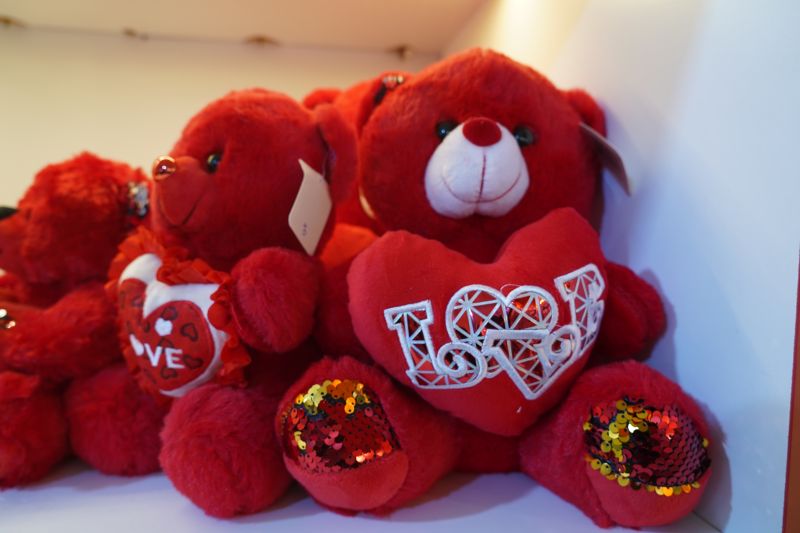
Love at Any Cost?
This practical approach is especially reflected in Fady’s words. “As a joke, we tell each other that marriage is out of the question before we’re thirty... at least. But in fact, it’s impossible for us to think otherwise, given the country’s situation,” says the 25-year-old. In a relationship of four years, he plans to start a family with his partner, Christelle.
However, that plan is currently on hold. “I really have doubts about my ability to ever start a family in Lebanon. I’m already fighting every day to stay in this country and build my life here – so what does marriage even mean?” Fady wonders, pointing to the country’s instability and the lack of government support.
“Loving her unconditionally isn’t enough. No man wants his partner to live in scarcity. To commit, I first need to secure a home and a stable job with a steady income that will allow me to take on my responsibilities. I still have a long way to go,” he says, glancing at Christelle, who smiles and rolls her eyes.
“I understand that he grew up believing that a man must fully provide for his family, but times have changed. He needs to realize that building a family is a shared effort, and we both need to contribute to the expenses in order to move forward,” replies the 24-year-old woman, who balances her work and studies.
Although times have changed and an increasing number of couples now share the financial responsibilities of a household, the country is still deeply rooted in tradition and a patriarchal mindset. Many people still view the man as the primary provider for the family.
Samar and Maurice, on the other hand, are planning to marry in August. They made this decision a few months ago, during a period of acute instability in Lebanon, just before the escalation of the war between Hezbollah and Israel. “We converted the parking lot on the ground floor of Maurice’s family building into a studio apartment. We can't afford to buy a property or build a full floor. Of course, having children is not an option for now,” explains the 27-year-old bride-to-be, adding that a significant portion of the wedding expenses was borrowed from relatives.
The country’s financial instability is compounded by its volatile security situation. “We made the wedding reservations as soon as we saw that the fighting was calming down, just a few weeks ago. The stress is immense because I know that at any moment, everything could go up in smoke if the hostilities resume,” Samar explains.
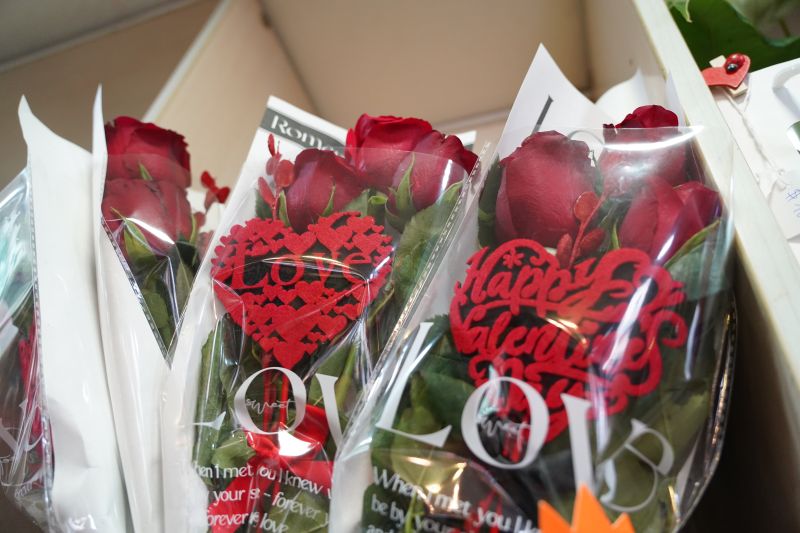
The Impossible Love
In 2025, family, religion, culture and traditions still hold a fundamental place in Lebanon – one that love cannot always override. When marked by a perceived flaw, love becomes impossible.
“In our own little bubble, we adore each other, but beyond that, we are strangers,” says Catherina*, a faint, sorrowful smile appearing on her lips. At 24, this seventh-year medical student has been in an impossible relationship for five years. She is a Christian from Beirut; he is a Sunni from the Beqaa.
“It’s either me or his family. His parents would disown him if he commits to a Christian,” she says, explaining that their cultures are very different, with her partner’s family deeply rooted in tradition. This looming threat forces the two lovers to confine their relationship to private spaces. Even a simple outing poses a considerable risk.
So, they tried to part ways several times, but to no avail. After all, Cupid has his hidden and mysterious reason.
“I hold on to love because I grew up in a home where it was so beautiful and strong that it could overcome anything,” says Catherina. “I will wait… I will wait for things to fall into place one day… or for it all to end, since to him, our relationship isn’t meant to last. All I know is that I won’t be the one to bear the brunt of it…” she concludes, teary-eyed.
While similar stories have unfolded in Lebanon, they are still uncommon. The country of the Cedars, governed by 18 religious communities, still struggles to accept them as secular marriage is still out of the question.
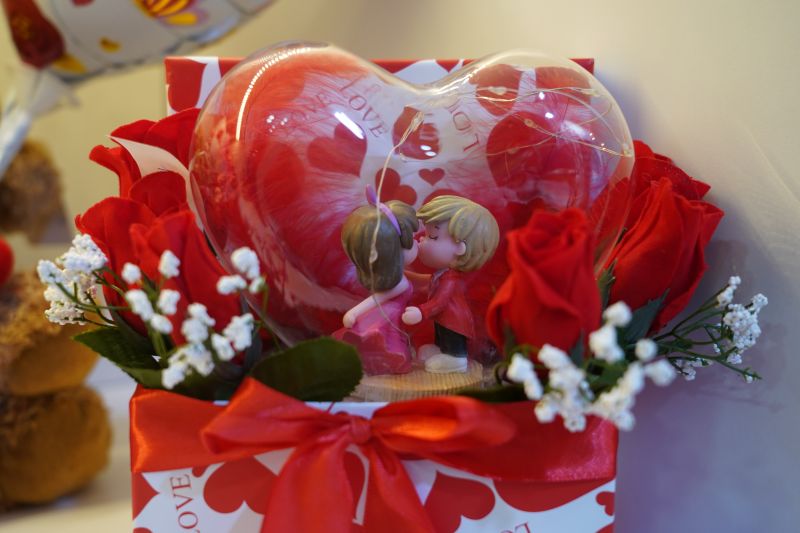
An Updated Version of Love
While romantic relationships in the country are still heavily influenced by a noticeable conservatism, times are changing. Social media and dating apps now play an increasingly important role in the development of budding relationships.
“The dynamics of relationships are evolving, as are expectations,” says psychologist Maya Hawa. “In the past, a relationship often began with one goal: marriage. Today, some people are looking for a partner for the present moment, without necessarily thinking about the future. This shift is particularly evident in the growing use of dating apps, which have changed the way relationships start.”
However, for Hawa, this change is not universal. While dating apps have lost much of their taboo status among a large segment of the younger generation, some still view them with caution, as cultural differences remain deeply rooted in Lebanon.
“Conservatism has even managed to infiltrate the realm of dating apps. We still live in a misogynistic society where men and women are not equal in romantic relationships,” says Ama. This 26-year-old art student is an avid user of dating apps, seeing them as a way to overcome loneliness. However, she often struggles to find what she’s looking for.
“Most of the men I’ve met there are only interested in a sexual relationship. To them, a woman who’s on these apps is nothing more than an object. A woman who expresses her sexuality is considered dirty and impure,” bemoans the artist, who fully embraces her sexuality.
This is the very reason why many young women in Lebanon have abandoned dating apps, and why couples that have met on them often struggle to acknowledge their relationship. This internalized conservatism is even reflected in this article, where the number of women speaking about love exceeds that of men. Hawa explains this gap by pointing out that Lebanese men are taught not to let their emotions take over. According to her, although things are gradually changing, “expressing these emotions is still seen as a weakness.”
However, Hawa remains optimistic. She believes that the Lebanese are among the most passionate people in the world. As the psychologist puts it, “their unwavering love for their country, despite all they’ve endured, is proof of that. I don’t believe love will ever fade away in Lebanon… it just takes allowing oneself to love.”




Comments